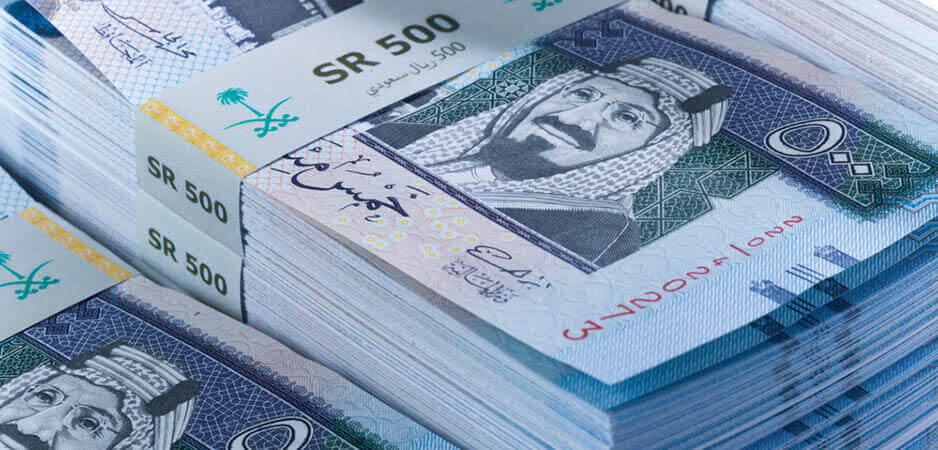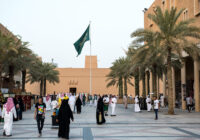Who are the intended beneficiaries of Saudi charity? The Saudis and the Saudi brand, of course.
In recent weeks and months, no two people in the world have taught us more about how high-level politics works than US President Donald Trump and Saudi Crown Prince Mohammed bin Salman (MBS). The lesson they have so insisted on having us learn is very simple: Anything can be purchased, if the price is right. Reflection on the morality of a transaction can only be a useless diversion.
They are not alone in putting this wisdom into practice. They simply appear to have the mission of teaching us that this is the way the world works. Trump made it clear that if a murderous, oil-producing nation pays you good money (preferably measured in billions) to increase its capacity for murder, it’s the billions that count, not the thousands who will be murdered or maimed (in Yemen) or the random individuals (e.g. journalists) who will be jailed — or, even better, tortured and murdered (in Turkey, for example).
The Saudis have perfected the art of applying the now incontrovertible business “logic” of demanding (and receiving) “benefits” and “favors” in exchange for money. Citing a leaked document, The Guardian reveals the terms of a Saudi donation contract with the United Nations Office for the Coordination of Humanitarian Affairs (OCHA): “Future grants distributed by [OCHA] to agencies should be tied to the amount of beneficial publicity given to Saudi Arabia.”
Here are today’s two 3D definitions:
Beneficial:
Favoring or offering an advantage, traditionally understood as a natural effect, but increasingly the result of the transfer of significant amounts of money
Grant:
Traditionally, the allocation by a government of a sum of money for a project deemed to benefit society, with no stings attached. More recently, the allocation by a government of a sum of money to benefit itself, with powerful strings attached.
Contextual note
The article mentions — but doesn’t directly comment on — the most striking and repulsive irony in the document: “It also calls for [OCHA] to seek favourable publicity for the Saudi humanitarian effort in Yemen,” followed by, “We consider it very important to ensure that our dear fellow Yemenis are all aware of our donations.”
The inclusion of “dear” to describe a population the Saudis have been massacring and terrorizing for more than two years is beyond irony. The misuse of the word “fellow,” which, if taken literally, implies that the Saudis consider themselves to be Yemenis can be read as an example of extreme presumption. The Saudis have created the world’s worst humanitarian disaster in Yemen. Do the Saudis seriously consider those they have slaughtered or left to the ravages of cholera their “dear fellow Yemenis”?
In a certain sense, the Saudis are doing what every business person does: making hay while the sun shines, to quote an ancient English proverb. Always make sure to get something in return for whatever you do. It’s called ROI (return on investment). As keepers of the faith, the Saudis have no problem insulting the tradition of generosity (zakat) featured in the Qur’an as one of the five pillars of Islam. Western capitalism has taught the Saudis a higher form of wisdom: Don’t give anything without getting an equal or superior amount in return.
The Saudis’ investment strategy focuses on exploiting the reputations of various prestigious institutions deemed to be furthering the good of humanity. As Democracy Now reports, the University of New Haven enthusiastically embraced its partnership with King Fahd Security College in Riyadh, which was sealed by the Saudis “generous” donations.
 One of the designated partners is Salah al-Tubaigy, the forensic expert who supervised the murder and dismembering of journalist Jamal Khashoggi. Yale, Harvard, MIT and other elite universities regularly accept Saudi money on the understanding that their role is to boost the Saudi image.
One of the designated partners is Salah al-Tubaigy, the forensic expert who supervised the murder and dismembering of journalist Jamal Khashoggi. Yale, Harvard, MIT and other elite universities regularly accept Saudi money on the understanding that their role is to boost the Saudi image.
Historical note
Few people realize how recently the idea that “everything has a price” has become the unique and absolute foundation of our global commercial culture. Once upon a time, some things belonged to the collective environment and were not for sale. It was only a few decades ago that the corporate renaming of sports stadiums began. For most of the 20th century, the names of stadiums were linked to local history and geography, as local sports teams were seen as emanations of the community. Then someone discovered that a corporation could “make billions of positive brand impressions” by affixing their corporate brand on the stadium. That has become a basic law of success in the attention economy.
In the 1950s, advertising was known as the domain of “hidden persuaders.” Our commercial culture seems to have moved on to the idea of “upfront persuaders,” based on the enduring presence of the brand in people’s minds. What remains hidden is the money that feeds the opportunities to make the brand known.
More recently governments, and especially militarily aggressive governments, have developed a new marketing science of brand association or cross-branding. To sell the always aggressive mission of its military, the Pentagon has created a deep branding association with American football and basketball, with powerful subliminal effect. To soften their image, the Saudis have gone to Western universities and even the humanitarian side of the UN to airbrush their obviously despotic and murderous behavior.
The saddest part of this is that respectable institutions play the game because, well, they can always use the money, while wishing to believe it won’t distort their mission.
*[In the age of Oscar Wilde and Mark Twain, another American wit, the journalist Ambrose Bierce, produced a series of satirical definitions of commonly used terms, throwing light on their hidden meanings in real discourse. Bierce eventually collected and published them as a book, The Devil’s Dictionary, in 1911. We have shamelessly appropriated his title in the interest of continuing his wholesome pedagogical effort to enlighten generations of readers of the news.]
The views expressed in this article are the author’s own and do not necessarily reflect Fair Observer’s editorial policy.
Support Fair Observer
We rely on your support for our independence, diversity and quality.
For more than 10 years, Fair Observer has been free, fair and independent. No billionaire owns us, no advertisers control us. We are a reader-supported nonprofit. Unlike many other publications, we keep our content free for readers regardless of where they live or whether they can afford to pay. We have no paywalls and no ads.
In the post-truth era of fake news, echo chambers and filter bubbles, we publish a plurality of perspectives from around the world. Anyone can publish with us, but everyone goes through a rigorous editorial process. So, you get fact-checked, well-reasoned content instead of noise.
We publish 2,500+ voices from 90+ countries. We also conduct education and training programs
on subjects ranging from digital media and journalism to writing and critical thinking. This
doesn’t come cheap. Servers, editors, trainers and web developers cost
money.
Please consider supporting us on a regular basis as a recurring donor or a
sustaining member.
Will you support FO’s journalism?
We rely on your support for our independence, diversity and quality.






